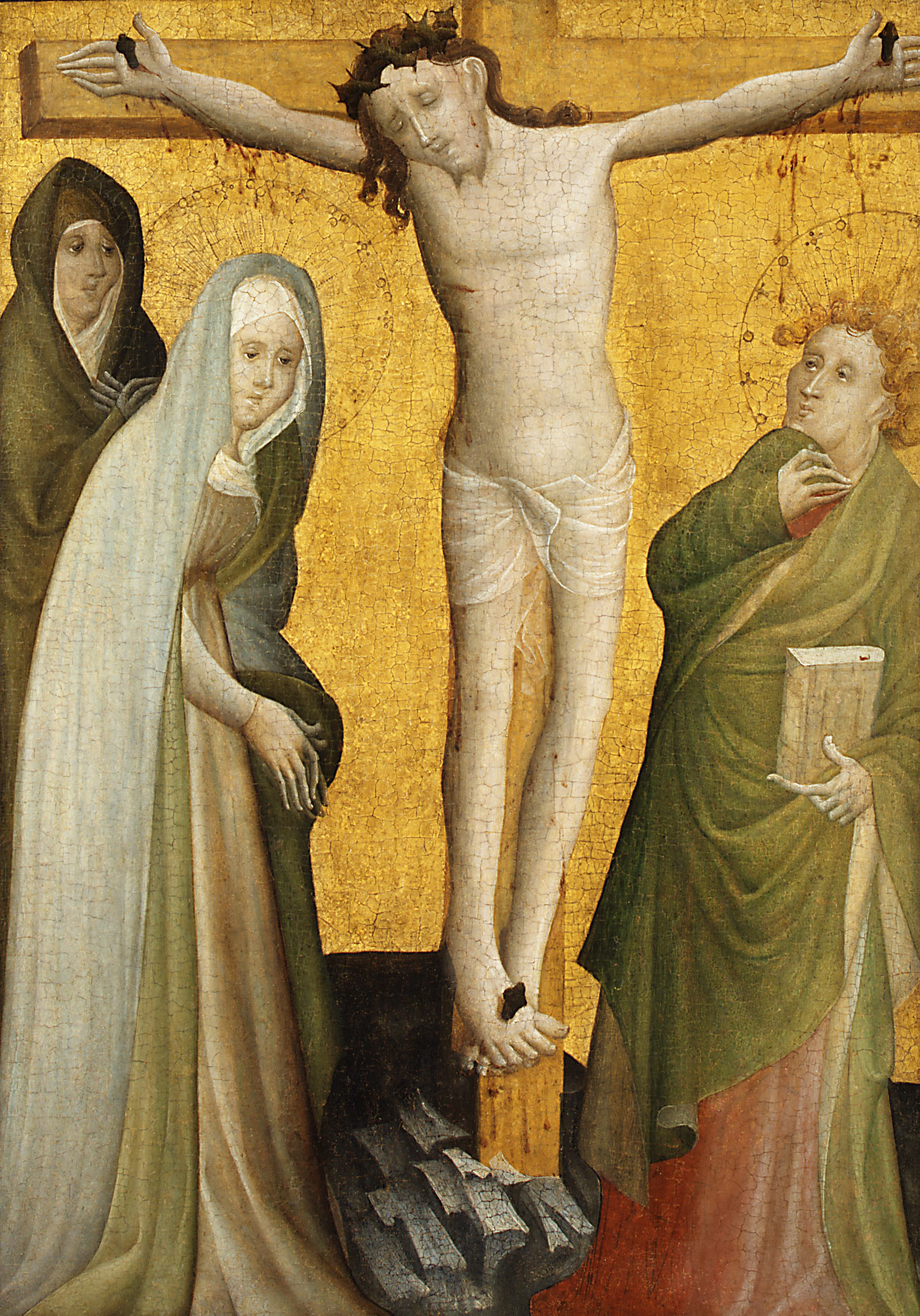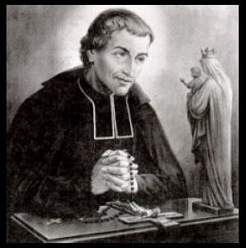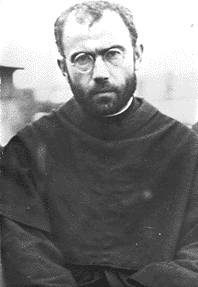The persecutions of the devil comprise all that one may have to suffer from him: temptations, obsession, possession. On this subject we must recall, first of all, the theological principle which throws light on these problems: the action of the devil does not go beyond the sensible part of the soul and cannot be exercised immediately on the intellect or the will.
This is an important point and where charismatics go off. The intellect and the will slowly become corrupt if one persists in sin.
St. Thomas (2) says in substance that, since every agent acts for an end which is proportionate to it, the order or subordination of agents corresponds to the order of the ends. God alone can incline our intellect to universal truth and our will to the universal good, and finally to Himself, the Sovereign Good. Therefore He alone can act immediately on our intellect and will, according to their natural inclination, which comes from Him and which He preserves.
People choose to say yes or no to God.
Solus Deus illabitur in anima.
With the permission of God, however, the devil can attack us by acting on our imagination, our sensibility, on external objects, and on our body to incline us to evil. (3) He often limits himself to temptation by way of suggestion and more or less impetuous movements; but occasionally his action goes as far as obsession and in certain cases even to possession.
Choice involves following a way of life. If one's lifestyle is contrary to God's will, this state leads to one cutting the sources of grace in one's life. One has to want to give up sin.
In these matters two excesses must be avoided: attribution to the devil of what proceeds from the triple concupiscence or from certain morbid states, or, on the contrary, unwillingness to admit his intervention in any case, in spite of what Scripture and tradition tell us about it.
We shall sum up here the traditional teaching on obsession and possession.
Again, too many lay people are confused about these terms, which is why I quote this great author.
Obsession is a series of temptations that are more violent and prolonged than ordinary temptations. Rarely does the devil act only on the exterior senses; more frequently, through the imagination; he provokes lively impressions of the sensible appetites in order to trouble the soul. He may act on the sight by loathsome apparitions or, on the contrary, seductive apparitions; (4) on the hearing, by making a racket (5) or by making the person hear blasphemous or obscene words; (6) on the touch, by inflicting blows or by embraces of a nature to lead to evil.(7) There are cases in which these apparitions are not corporeal, but imaginary or produced, like hallucination, by nervous overexcitement.
Remember, many of the saints, such as the holy St. John Vianney, were troubled by the evil one.
The direct action of the devil on the imagination, memory, and passions, may produce obsessing images, which persist in spite of energetic efforts and which lead to anger, to very lively antipathies, or to dangerous affections, or again to discouragement accompanied by anguish. Those whom the enemy of good persecutes in this way feel at times that their imagination is as if bound by thick shadows, and that over their heart rests a weight which oppresses them. This powerlessness is entirely different from that proceeding from the divine action which, in bestowing infused contemplation, renders discursive meditation more or less impracticable.
A simple rule: if something makes one depressed or sad, that thought or impression is not from God.
The enemy of God, in his jealous desire to imitate the divine action, seeks to cause the effect of God's action to deviate, in such a way that, in the passive purifications, the soul occasionally finds itself between the special action of God, which inclines it to a spiritual life more freed from the senses, and an inverse action, which in its way strikes it with powerlessness in order to cause the effect of the divine action to deviate and to throw the soul into utter confusion.
Confusion is not from God, and if one is experiencing much confusion, a spiritual director and even a psychological counselor may be needed.
If the temptations of which we are speaking are sudden, violent, and persistent, and no illness explains them, a special influence of the devil may be seen in them.
Obsession may be so strong that it deserves the name of diabolical siege. Scaramelli says: "In the diabolical siege, the devil stays near the person whom he besieges as a captain does near a place which he surrounds closely with his troops. But he has no stable and permanent power over the body of the obsessed person (which occurs only in possession); and once the time of purification is ended, the devil himself raises the siege and goes off without exorcisms, without injunction." (8)
The charismatics do not get this.
By what sign may one recognize that obsession is related to the passive purification of the senses? Obsession may be linked with the passive purification of the senses if the obsessed person works seriously at his perfection, in particular if he is humble, obedient, charitable, and if he has the three signs of the night of the senses indicated by St. John of the Cross. On the other hand, astute, very subtle persons may, for interested motives, seek to make themselves pass for victims of the devil, in such a way especially as to excuse excessively compromising exterior faults which they commit.
In other words, as with Job, God allows pain and suffering in the purgative time of the passive purgation.
The charismatics do not see that God allows pain for purification. I have heard charismatics say that if a person is not healed or is in pain, there must be sin. Of course, that is purpose of purification.
Some people who are false seers lead people out of the Church in these guises.
In dealing with obsessed persons, the director should be prudent and kind; he should not believe too readily in a true obsession; he should remind the penitent, first of all, how temptation must be resisted, pointing out that it is an occasion to acquire great merits by a salutary, firm, at times heroic reaction, and by the practice of humility. He should remind the penitent that the principal remedies are humble, trusting prayer, recourse to the Immaculate Virgin, to St. Michael, to the guardian angel, the trusting use of the sacraments and sacramentals, scorn of the devil, who may indeed bark, but who can bite only those who draw near him.
The good priest understands the heart and mind and soul of those who are being perfected.
The director should also remind his penitent that, if in the violence of temptation disorders are produced without any consent, there is no sin in them. In case of doubt, he will judge that there is no serious sin when the person concerned is habitually well disposed. If he sees that the obsession is part of the passive purification of the senses or of the spirit, he will give appropriate counsels, which we recalled earlier in the course of this study. (9)
There is no sin if a person is suffering. There is no sin if God is perfecting a person to destroy sins.
Lastly, if diabolical obsession is morally certain or very probable, the priest may employ privately the exorcisms prescribed by the Roman Ritual or shortened forms. To avoid agitating the penitent or overexciting him, it is best, as a rule, not to inform him beforehand that one is going to pronounce over him the words of private exorcism; it is sufficient to tell him that one is going to recite over him a prayer approved by the Church.
Even nuns in convents can experience such horrible obsessions, and need the care of priests who are exorcists.
What is possession? By possession the devil really dwells in the body of the victim, instead of only making his action felt from the outside, as in obsession. Moreover, by thus acting from within, he not only hinders the free use of a man's faculties, but he himself speaks and acts by the organs of the possessed person, without the latter being able to hinder him from doing so, and even as a rule without his perceiving it.
Possession is more rare but more and more common with young people getting into the occult and people of a certain age getting into New Age nonsense.
When we say that the devil dwells in the body of a person, we do not mean that he is there like the soul itself which informs the body, but like a motor which, through the body, acts on the soul. He acts directly on the members of the body, makes them execute all sorts of movements, and he acts indirectly on the faculties in the measure in which they depend on the body for their operations.
Two states are distinguished in possessed persons: a state of crisis, with contortions, outbursts of rage, blasphemous words; and a state of calm. During the crisis, the patient generally loses, it seems, the feeling of what is taking place in him, for afterward he has no memory of what the devil has, they say, done through him. Nevertheless, as an exception, there are possessed persons who remain aware of what is taking place in them during the crisis. This was, it seems, the case with Father Surin, who, while exorcising the Ursulines of Loudun, himself became possessed or at least obsessed. He said: "In this state, there are very few actions in which am I free." (10)
In the state of calm, the devil seems to have withdrawn, although there may still remain at times chronic infirmities which physicians do not succeed in curing.
As a rule possession is more properly a punishment than a purifying trial. However, there are exceptions, like the case of Father Surin, that of Blessed Eustochium of Padua, beatified by Clement XIII, on March 22, 1760,(11) that of Marie des Vallees, spiritual daughter of St. John Eudes.(12) Mention must also be made of the more recent case of Sister Mary of Jesus Crucified, an Arabian Carmelite who died in the odor of sanctity at Bethlehem in 1878, and the cause of whose beatification has been introduced. She was twice the victim of possession, or at least of a very strong obsession, first at the Carmel of Pau, later at that of Mangalore.(13) There have been other similar cases, in which possession was a concomitant phenomenon of the passive purification of the senses or that of the spirit, in souls that offered themselves as victims for sinners.
What are the signs of real possession? Great care must be taken to distinguish it from certain cases of monomania and of mental alienation which resemble it. According to the Roman Ritual (De exorcizandis obsessis a daemonio), there are three principal signs: "To speak an unknown language, making use of several words of this language or understanding him who speaks it; to disclose distant and hidden things; to manifest strength which surpasses the natural powers of the subject, considering his age and state. These and other similar signs, when united in great number, are the strongest indications of possession." They are particularly striking, for example, if a person who does not know either Latin or theology or knows only their rudiments, speaks in correct and even elegant Latin about the most difficult problems of theology, like that of the gratuity of predestination.(14) It is true that people adduce cases of morbid exaltation which awaken in the memory forgotten languages or fragments that have been heard; but in this question the Ritual demands much more, as we have just seen. Accompanying possession at times is levitation, a preternatural phenomenon which manifests itself under circumstances of such a nature that they cannot be attributed to God or to the good angels, but must be attributed to the devil. According to tradition, this was the case with Simon Magus who, they say, was lifted into the air and fell down.

Another indication of possession is that on coming into contact with a sacred object or on the recitation of certain liturgical prayers, the person believed to be possessed becomes furious and blasphemes horribly. This sign is more significant when the experience is brought about without the knowledge of the person, in such a way that the reaction is not produced by him, by his ill will, or by a desire to simulate possession.
It has been pointed out, apropos of these signs, that in extreme hysteria there are analogous phenomena.(15) Analogous, it is true, but not specifically similar; in hysteria the patient does not discourse in a language of which he is ignorant and in a learned manner on problems of which he has no knowledge at all, such as predestination or the efficacy of grace. Besides, the devil can produce either nervous diseases, or exterior phenomena analogous to those of neuroses; he may also make use of an existing illness and reduce the patient to a state of exasperation.

What are the remedies for possession? The Ritual indicates the following: (I) The possessed person must do penance and purify his conscience by a good confession. (2) He should receive Holy Communion as often as possible, according to the advice of a prudent and enlightened confessor. The more pure and mortified a soul is, the less hold the devil has on it; Holy Communion introduces into the soul the Author of grace who is the conqueror of Satan. However, Holy Communion should be given only in moments of calm. (3) The possessed person should often implore the mercy of God by prayer and fasting. (4) With a great spirit of faith he should make use of sacramentals, in particular of the sign of the cross and holy water.(16) He should have trusting recourse to the invocation of the holy name of Jesus, of His humility, His immense love. (5) Lastly, the exorcisms were instituted for the deliverance of possessed persons in virtue of the power of driving out devils which Jesus Christ left to the Church. But solemn exorcism may be performed only by priests chosen by the bishop of the place and with his special authorization.
Only priests who are exorcists appointed by bishop can perform exorcisms. Period. If they have a team of lay people, those lay people have professional training, as in the States. Under canon law — Canon 1172 specifically — only those priests who get permission from their bishops can perform an exorcism after proper training.
The Ritual counsels exorcists to prepare themselves for this difficult function by prayer, fasting, and a humble and sincere confession, so that the devil may not reproach them with their own sins. In addition, solemn exorcism should, at least as a rule, be performed only in a church or chapel. The exorcist should be accompanied by grave and pious witnesses, sufficiently strong to overpower the possessed person if necessary. Lastly, the exorcist should proceed to the interrogations with authority, rejecting all that is useless. He summons the devil or the devils to declare the reason for the possession and to tell when it will end. To oblige the enemy of God to do this, the exorcist must redouble the adjurations which seem to irritate the devil most, that is, the invocations of the holy names of Jesus and Mary. If the evil spirit makes sarcastic and derisive answers, silence must be imposed upon him with authority and dignity. The witnesses should be few in number, they must not ask questions, but should pray silently. The exorcisms should be continued for several hours and even for several days, with intervals of respite, until the deliverance, which should be followed by prayers of thanksgiving.
Enough said on this subject....
|














